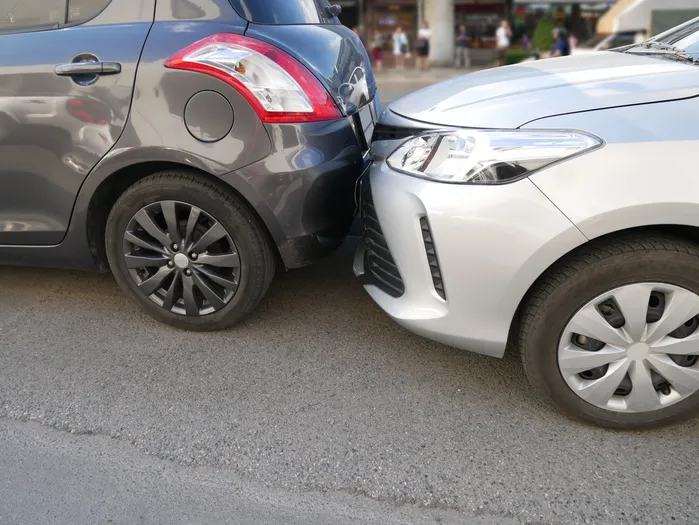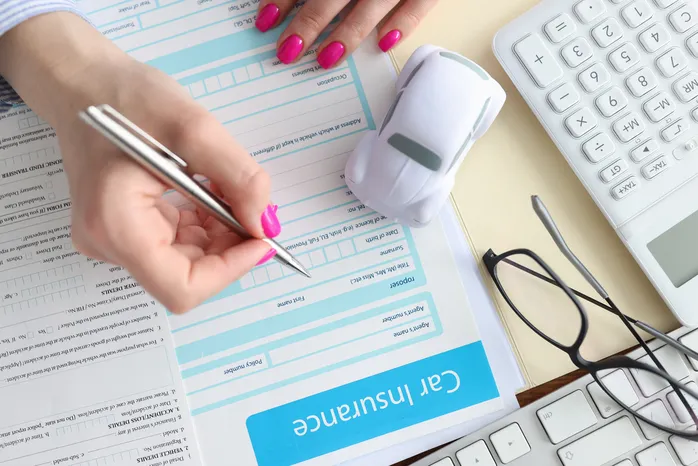7 min read time
Table of Contents

7 Reasons Why You Should Get a Lawyer for a Car Accident Your Not at Fault for
Being in a car accident can be a stressful and confusing experience, especially if it wasn’t your fault.
One of the first questions after car accidents is whether I should get a car accident lawyer. Here are several reasons why getting a car accident attorney is a good idea, even if you weren’t at fault:
1. Insights into Your Rights and Options
A car accident lawyer can help you understand your rights and options.
They can explain personal injury law, insurance policies, and the car accident claim process. So you can make informed decisions and take the necessary steps to protect yourself.
2. Dealing Insurance Companies
Dealing with the insurance company, especially the other driver's insurance company, is challenging.
Insurance adjusters want to pay out as little as possible to save money. A car accident lawyer can negotiate with the insurance companies on your behalf to get you fair compensation for your physical injuries, property damage, medical expenses, lost wages, and other losses.
3. Proving Negligence and Damages

Proving the other party was at fault for the auto accident and the extent of your damages can be tricky, even if you believe you're not at fault for the car crash.
A lawyer can gather evidence such as the police report, witness statements, medical records, and expert testimony from accident reconstruction specialists to build a strong case.
They can also calculate the full extent of your damages, including medical bills, lost wages, emotional distress, pain and suffering, and future costs to ensure your personal injury claim fairly compensates you.
4. Navigating the Legal Process
Car accident claims involve many steps and limitations. Missing a deadline or making a mistake can ruin your car accident case.
An experienced attorney can handle all the paperwork, filings, and court procedures so everything is done correctly and on time.
5. Maximum Compensation
An experienced personal injury lawyer knows the tricks insurance companies use to reduce settlements.
They can fight for you to get you the most money you deserve. This includes considering all your damages and negotiating on your behalf.
6. Contingency Fee Basis
Many personal injury lawyers work on a contingency fee basis, meaning they only get paid if you win your case.
This way, you can get legal representation without upfront costs, and your lawyer’s interests are aligned with yours – they want to get you the best result.
7. Peace of Mind
Getting a personal injury attorney can give you peace of mind during a chaotic time.
Knowing an experienced personal injury attorney is handling your case allows you to focus on your recovery and well-being instead of navigating the insurance claims process.
Summary
You might not think you need a lawyer for a car accident that wasn’t your fault, but having a lawyer can decide whether you receive fair compensation.
Personal injury lawyers can help you know your rights, deal with insurance companies, prove fault, navigate the legal process, provide insights into car accident law, and get you the most money.
Schedule a free consultation with a personal injury lawyer after a car accident to protect yourself.
Should You Never Admit Fault in a Car Accident?
You should never admit fault at the accident scene following a car accident, even if you think you might be at fault.
This is based on legal and car insurance implications that can affect your ability to get fair compensation and protect your rights. Here’s why you should never admit fault after a car accident:
Legal consequences: Admitting fault can have devastating legal consequences. Your statement can be used against you in court to prove liability and affect the outcome of any lawsuit or insurance claim you consider filing.
Insurance complications: If you admit fault, your attorney will have less room to negotiate, and your injury claim may even be denied. Insurance adjusters can also use your admission to shift all the blame onto you, affect your coverage, and increase your premiums.
Comparative fault: Admitting fault outright can prevent a proper evaluation of the other party’s role in the accident and reduce your ability to recover for your losses.
Should I Let My Insurance Know If It Wasn’t My Fault?

You should inform your insurance company even after an accident that wasn't your fault.
Here are several reasons why it’s essential to notify your insurer even if you believe the other driver caused the accident:
Policy Requirements
Most car insurance companies have policies that include a clause requiring policyholders to report all accidents, regardless of fault.
Failing to inform your insurer about an accident could be considered a breach of your policy terms, potentially leading to complications or denial of future claims.
Protecting Your Interests
By reporting the accident, you protect your interests and ensure that your insurance company can take appropriate steps to investigate the incident and defend you against the at-fault driver if necessary.
Your insurer can gather evidence, speak with witnesses, and obtain the police report to support your case.
Facilitating the Claims Process
Informing your insurance company immediately after the accident occurred can expedite the claims process.
Even if the other driver is at fault, there may be delays or disputes in their insurance company's acceptance of liability. Your insurer can assist in these negotiations and help you get your vehicle repaired and medical bills covered more quickly.
Coverage for Immediate Expenses
If your car is damaged or you sustained injuries, your insurance policy might include coverage that can help with immediate expenses, such as medical payments or collision coverage.
Your insurer can cover these costs upfront and seek reimbursement from the at-fault driver’s insurance company later.
Avoiding Future Issues
Failing to report an accident might lead to complications down the line. The other driver could change their story, or the extent of damages and injuries might become more apparent over time.
By documenting the incident with your insurance company, you create an official record that can be crucial if disputes arise.
Subrogation
Your insurance company might pursue a subrogation claim against the at-fault driver’s insurer if the accident was not your fault.
This process allows your insurer to recover the costs they’ve paid on your behalf, such as repair expenses and medical bills, from the responsible party’s insurance.
Does Your Insurance Go Up After a Claim That Is Not Your Fault?
One of the primary concerns for drivers involved in a car accident that wasn’t their fault is whether filing a claim will increase their insurance premiums.
While this seems counterintuitive, the reality is more complicated. Here’s a closer look at how insurance premiums can be affected after a not-at-fault claim:
Factors Influencing Premium Increases
Insurance Company Policies: Different insurance companies have varying policies regarding rate increases after a not-at-fault accident claim. Some insurers may raise premiums, while others might not.
State Regulations: In some states, laws prevent insurance companies from increasing premiums because of a not-at-fault claim. It’s essential to understand the regulations in your state.
Claim Frequency: If you’ve filed multiple claims within a short period, even if you were not at fault, insurers might consider you a higher risk, potentially leading to increased premiums.
Overall Risk Assessment: Insurers assess overall risk based on various factors, including your driving history, location, and the nature of the accident. The incident might influence your risk profile even if you’re not at fault.
Impact of Filing a Claim
While at-fault accidents are the biggest and most common cause of rate increases, filing a claim for a not-at-fault accident can have effects on your insurance premium:
Administrative Costs: Processing a claim costs the insurance company administrative costs. Some insurers may pass those costs on to policyholders through small rate adjustments.
Market Forces: Insurance companies adjust rates based on market trends and claims data. If the company sees an increase in claims, even not-at-fault ones, they may raise rates across the board.
It's crucial to seek legal counsel before filing an insurance claim to fully understand how it may affect you.
Frequently Asked Questions
Obtain the Compensation You're Entitled To
Contact Us Today
Rodney Okano Car Accident Lawyer is a Las Vegas personal injury law firm with over 20 years of experience helping clients obtain maximum compensation following injuries from accidents such as car crashes, worksite injuries, and slips and falls. Over those years, The Rodney Okano Car Accident Lawyer Law Firm has become an experienced law firm that can ensure exceptional results for any of its clients.






